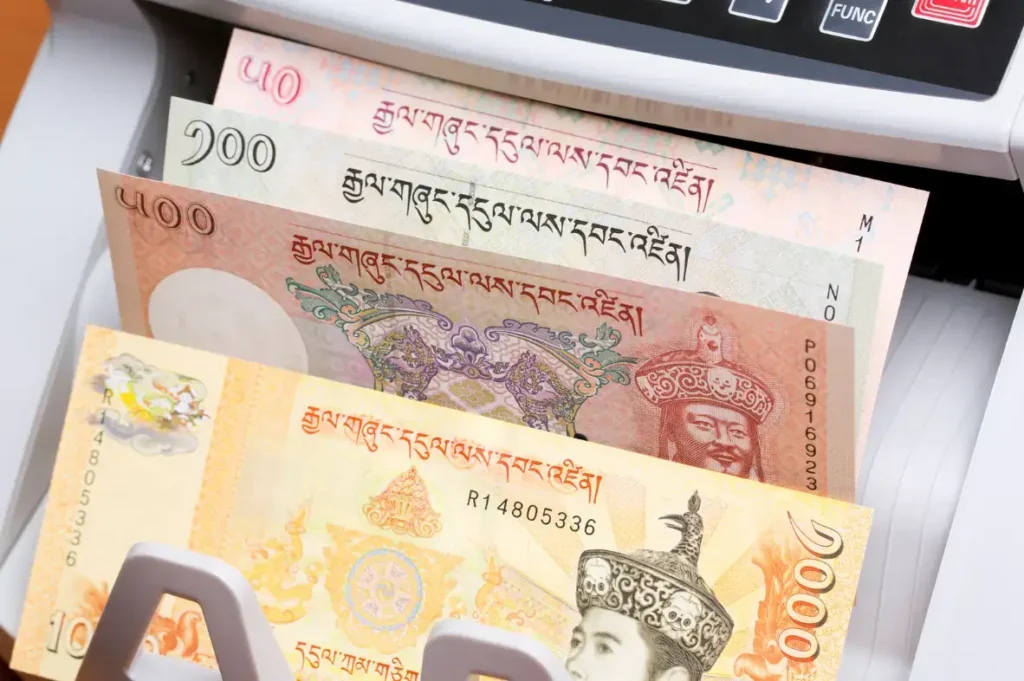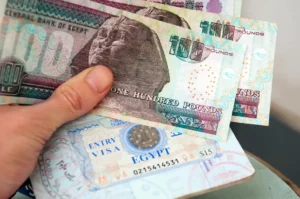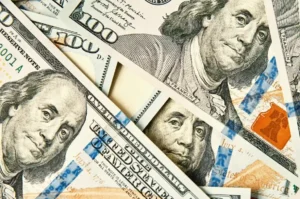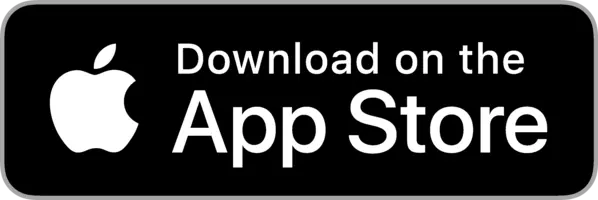Bhutan’s breathtaking Himalayan landscapes, deeply rooted Buddhist traditions, and unique Gross National Happiness philosophy make it a one-of-a-kind travel destination, where understanding how to handle money is key to a smooth journey. Whether you’re exploring the cliffside Tiger’s Nest Monastery, experiencing a colorful local festival, or trekking through pristine mountain trails, this guide covers everything you need to know – what currency to bring, the best ways to get money and currency in Bhutan (Bhutanese Ngultrum (BTN) and Indian Rupee (INR)), cash safety tips, and essential dos and don’ts. With these insights, you’ll avoid unnecessary fees and fully enjoy Bhutan’s serene and culturally rich environment.
How to pay in Bhutan – cash or card?
In Bhutan, cash is the predominant method of payment, especially outside major tourist establishments. The official currency is the Bhutanese Ngultrum (BTN), which is pegged to the Indian Rupee (INR). While major hotels and select businesses in urban areas may accept credit cards, cash remains essential for most transactions.
You can use cash for:
Public Transportation: Buses and local taxis primarily operate on cash payments.
Local Markets and Street Vendors: Purchases at traditional markets and street stalls are predominantly cash-based.
Small Businesses: Many small or family-run shops and eateries prefer cash transactions.
Tips and Gratuities: It’s customary to tip in cash for services such as dining, tour guides, and hotel staff.
Rural Areas: In less urbanized regions, cash is the main form of payment.
You can use card for:
Hotels: Major hotels, especially in urban and tourist areas, may accept credit and debit cards. However, it’s advisable to confirm in advance.
Restaurants and Cafés: Some dining establishments in cities like Thimphu and Paro may facilitate card payments, but this is not guaranteed.
Retail Stores: A few souvenir shops and markets in urban centers accept cards, but cash is preferred.
Car Rentals and Travel Agencies: Established agencies may offer card payment options, though many prefer bank transfers or cash.
Online Bookings: Some tour operators and hotels offer online payment facilities via credit cards but they prefer bank transfers.
What’s the best currency to take to Bhutan
Bhutanese Ngultrum (BTN) is typically the best currency to take if you are traveling to Bhutan. Paying or withdrawing cash in the local currency comes with the least amount of fees, sometimes fee-free too.
Establishments in Bhutan readily accept the Indian Rupee (INR), as it is pegged at par with the Ngultrum, but only smaller denominations. While some hotels and shops in tourist areas may accept US Dollars, relying on them can lead to unfavorable exchange rates. Therefore, it’s advisable to pay in BTN or accepted INR denominations to avoid losing money.
US Dollars, Euros or British Pounds are not widely accepted here.
Where to get currency in Bhutan
There are 3 main ways to get cash in Bhutan. They are:
ATMs, or
Currency exchange, or
Money transfer & local pick-up
Types of cards to swipe in Bhutan
Visa and Mastercard transactions are commonly accepted for swiping. You might also find some places that accept Amex and other cards, albeit less frequently.
Types of cards at ATMs in Bhutan
If you’re withdrawing money in Bhutan from an ATM, ATMs commonly accept Visa, Mastercard, Maestro, Plus, Cirrus cards. However, some ATMs accept only Visa / Visa Plus and some accept only Mastercard / Cirrus. So carry options of both types of cards. Others like American Express, JCB, UnionPay, Diners, Discover and Rupay cards are generally not accepted.
Should I exchange money before travelling to Bhutan
Bringing a small amount of Bhutanese Ngultrum (BTN) before traveling can be useful for immediate expenses like taxis, tips, and small purchases. However, exchange rates outside Bhutan are usually poor, and most foreign banks do not stock BTN, making it difficult to obtain in advance.
Withdrawing BTN from ATMs in Bhutan is an option, but ATMs are limited outside major cities like Thimphu and Paro. Most ATMs accept Visa and Mastercard, but check with your bank about international withdrawal fees. ATMs may not always be reliable, so carrying cash is essential.
It’s best to exchange money in Bhutan at banks or licensed exchange bureaus, which offer better rates than airports or hotels. If exchanging at the airport, do so only for a small amount to cover initial expenses.
Carrying a mix of cash and cards. If bringing Indian Rupees (INR), USD, or EUR, exchange easily at banks or exchange bureaus. You can use Indian Rupees (INR 50, 100, and 500 notes) at a 1:1 rate, but establisments don’t accept higher denomination INR notes (₹2000). Paying in BTN ensures the best value.
Where to withdraw money in Bhutan
You can withdraw money in Bhutan at leading bank ATMs in the country. The best ATMs for foreigners to use in Bhutan are those owned by popular banks such as:
Druk PNB,
BNB,
T-Bank, and
Bank of Bhutan.
There are no known Global ATM Alliance member banks or All Points network banks in Bhutan.
Where to exchange currency in Bhutan
You can exchange currency in Bhutan at licensed exchange bureaus or banks.
Currency Exchange Offices: In Bhutan, currency exchange services are primarily offered by banks rather than standalone exchange offices. The Bank of Bhutan provides foreign exchange services at its branches in major towns such as Paro and Thimphu. Operating hours are typically from 9:00 AM to 3:00 PM on weekdays. So complete your currency exchange in these towns, as banking facilities are limited in rural areas.
Banks: The Bank of Bhutan is the largest and oldest commercial bank in the country, offering currency exchange services. Branches are located in major towns, with operating hours from 9:00 AM to 3:00 PM on weekdays.
You can find good currency exchanges using the ATM Fee Saver app – it will guide you to the nearest currency exchange on the map. The app helps you with forex places in 100+ countries, including Bhutan.
Avoid Airport Exchanges and no-fee exchange offices: While currency exchange services are available at Paro International Airport, they may offer less favorable rates compared to banks in the city. It’s generally better to exchange money in town for better rates and lower charges.
Is carrying cash in Bhutan safe?
Carrying cash in Bhutan is generally safe due to the country’s low crime rate; however, petty crimes like pickpocketing and bag snatching can occur, particularly in crowded areas. It’s advisable to carry only the cash you need for daily expenses and keep your valuables secure. While credit and debit cards are becoming more widely accepted, many hotels and shops often experience system outages and cannot accept credit cards. So carry enough cash on hand.
Is it better to use debit or credit cards or pay by cash in Bhutan
Use a card if it is fee-free i.e. your bank does not charge any fees to swipe the card, when the merchant / POS also does not impose any extra charge to use a card, you need to use the insurance of the card, don’t want to block cash of large purchases and card’s swipe fees are lower than withdrawal fees.
Pay by cash by withdrawing cash from ATM or exchanging currency where – fees on ATM withdrawals are lesser than fees on swiping cards, you don’t want to leave any digital footprint of your expenses, it is convenient and easier to conduct transactions.











